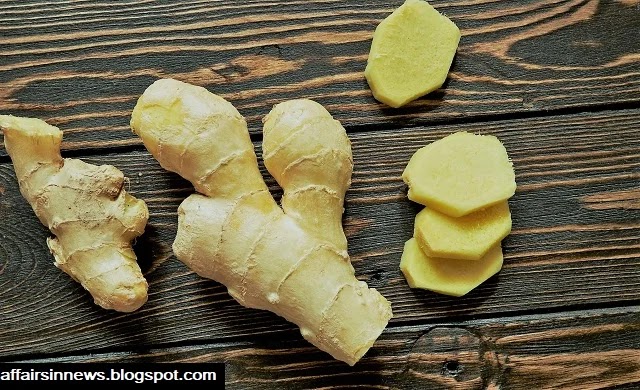Eat radish in winter and ginger in summer, is it reliable to eat ginger in summer?
As the saying goes, eat radish in winter and ginger in summer, no need for a doctor to prescribe medicine, summer is hot, some people feel that it is time to eat ginger again. However, is the statement of eating ginger in summer reliable? See what the experts say.
There is no scientific basis for eating ginger in summer
For the claim of eating ginger in summer, Yun Wuxin, a senior member of the American Food Technology Association and a member of the Scientific Squirrel Society, said that the claim comes from traditional medicine, and research based on modern scientific systems has not yet clarified its purported effect. "Hot" and "cold" are not concepts in modern science, and cannot be judged with evidence-based and realistic ideas. "Although there are also studies that show that eating ginger may help reduce vomiting reactions and reduce physical discomfort, it cannot solve the problem of dizziness. Moreover, it works no better than drugs. ”
Yun Wuxin also said that ginger as a seasoning and ingredient, as long as you need, you can eat, all kinds of "taboos", mostly conjecture, do not care.
How much do you know about ginger?
Although there is no clear modern medical proof of ginger's health benefits, as a seasoning, it is a daily necessity for many families. How much do you know about ginger?
According to the data, the cultivation of ginger originated in Asia and has a long history, and China is the second largest producer of ginger. Ginger is also known as purple ginger, seed ginger, ginger, fresh ginger, old ginger, etc. According to the storage time, it can be divided into young ginger and old ginger, young ginger has little spicy taste, crispy and tender meat, can be fried or pickled, sugar pickles; Old ginger is spicy, fragrant, and mainly used for seasoning. Ginger is used in the cooking of ordinary foods, mainly to remove fishy, dehydrated, seasoning and other functions.
What about ginger, what about its nutritional content? Ma Guansheng, a professor in the Department of Nutrition and Food Hygiene at the School of Public Health of Peking University, once said that each 100 grams of ginger contains 194 kilojoules of energy, 87 grams of water, 1.3 grams of protein, 0.6 grams of fat, 2.7 grams of dietary fiber, 10.3 grams of carbohydrates, 170 micrograms of carotene, 0.02 mg of thiamine, and 0.03 mg of riboflavin, which can be said to contain a variety of nutrients needed by the human body. However, ginger is generally used for flavoring, and these nutrients do not contribute much to the overall intake of nutrients.
In addition, there is a folk saying that "rotten ginger does not smell", believing that even if ginger is broken, its taste is still there, and it can still be used for seasoning. In this regard, Yun Wuxin said that ginger is the same as other foods, if it is "rotten", it means that bacteria or mold will grow, and it is prudent not to eat moldy and rotten ginger.
As the saying goes, "eat radish in winter and ginger in summer, no need for a doctor to prescribe medicine", summer is hot, some people feel that it is time to eat ginger again. However, is the statement of eating ginger in summer reliable? See what the experts say.
 |
| GINGER ROOT - THE RHIZOME OF FLOWERING PLANT GIGNGER WHICH IS WIDELY USED AS A SPICE AND ALSO IN EASTERN MEDICINE |
There is no scientific basis for eating ginger in summer
For the claim of eating ginger in summer, Yun Wuxin, a senior member of the American Food Technology Association and a member of the Scientific Squirrel Society, said that the claim comes from traditional medicine, and research based on modern scientific systems has not yet clarified its purported effect. "Hot" and "cold" are not concepts in modern science, and cannot be judged with evidence-based and realistic ideas. "Although there are also studies that show that eating ginger may help reduce vomiting reactions and reduce physical discomfort, it cannot solve the problem of dizziness. Moreover, it works no better than drugs. ”
Yun Wuxin also said that ginger as a seasoning and ingredient, as long as you need, you can eat, all kinds of "taboos", mostly conjecture, do not care.
How much do you know about ginger?
Although there is no clear modern medical proof of ginger's health benefits, as a seasoning, it is a daily necessity for many families. How much do you know about ginger?
According to the data, the cultivation of ginger originated in Asia and has a long history, and China is the second largest producer of ginger. Ginger is also known as purple ginger, seed ginger, ginger, fresh ginger, old ginger, etc. According to the storage time, it can be divided into young ginger and old ginger, young ginger has little spicy taste, crispy and tender meat, can be fried or pickled, sugar pickles; Old ginger is spicy, fragrant, and mainly used for seasoning. Ginger is used in the cooking of ordinary foods, mainly to remove fishy, dehydrated, seasoning and other functions.
What about ginger, what about its nutritional content? Ma Guansheng, a professor in the Department of Nutrition and Food Hygiene at the School of Public Health of Peking University, once said that each 100 grams of ginger contains 194 kilojoules of energy, 87 grams of water, 1.3 grams of protein, 0.6 grams of fat, 2.7 grams of dietary fiber, 10.3 grams of carbohydrates, 170 micrograms of carotene, 0.02 mg of thiamine, and 0.03 mg of riboflavin, which can be said to contain a variety of nutrients needed by the human body. However, ginger is generally used for flavoring, and these nutrients do not contribute much to the overall intake of nutrients.
In addition, there is a folk saying that "rotten ginger does not smell", believing that even if ginger is broken, its taste is still there, and it can still be used for seasoning. In this regard, Yun Wuxin said that ginger is the same as other foods, if it is "rotten", it means that bacteria or mold will grow, and it is prudent not to eat moldy and rotten ginger.











0 Comments
Any question in your mind or a request you want me to fulfill, please don't hesitate, comment below or do email to me.
I will try whatever I can!